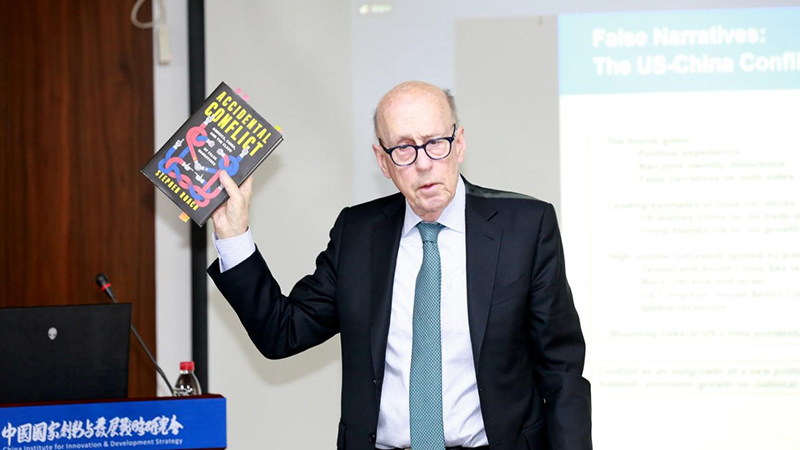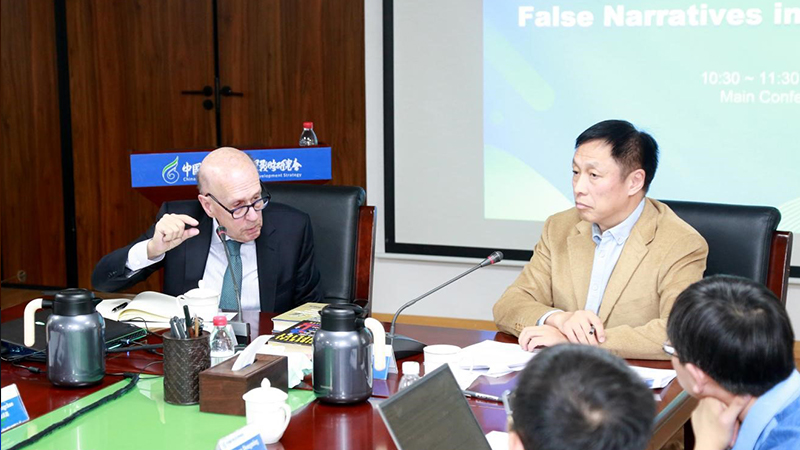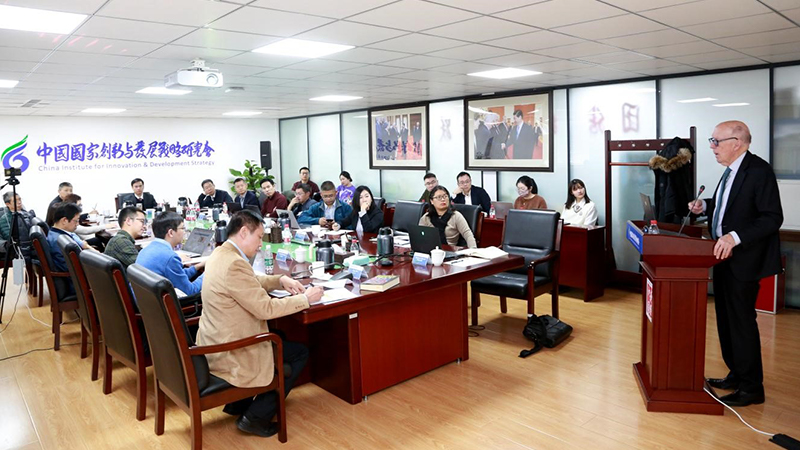On the morning of January 10, 2024, Stephen S. Roach, a Senior Fellow at the Paul Tsai China Center of Yale Law School, visited the China Institute for Innovation and Development Strategy (CIIDS). He delivered a speech titled "False Narratives in a World Prone to Conflict" and engaged in dialogue with relevant researchers.

Roach, drawing from his new book “Accidental Conflict: America, China, and the Clash of False Narratives”, argued that the downturn in the US-China relations essentially stems from the false narratives each holds against the other, epitomized by the blame game between the two sides. A classic example of the false narratives in the United States is that China should be held responsible for America's huge trade deficit. In reality, the US has trade deficits with 106 countries worldwide but unfairly singles out China as the scapegoat, leading to an erroneously launched trade war against China. It is proved that scapegoating China does not solve the issue of the US trade deficit; it instead exacerbates the problem, pushing the US-China relations into a difficult situation.

Roach suggested that to improve the U.S.-China relations, there must be fundamental corrections to the false narratives on both sides. His recommendations include three key areas: First, rebuilding trust. While the San Francisco Summit initiated positive steps in people-to-people exchanges and military interactions, more efforts are needed. Second, the two countries need to move away from zero-sum trade disputes and quickly shift towards pro-growth actions and market opening measures, such as restarting the negotiation on bilateral investment treaties. Third, a new framework for engagement is necessary. A few annual summits are insufficient, and a permanent mechanism akin to a "US-China Secretariat" should be established, located in a neutral territory, staffed equally by Chinese and American professionals. This body would have the capacity to convene experts across various fields, operate 24/7, and address all issues including economics, trade, technology, subsidies, state-owned enterprises, climate change, public health, etc.
Roach emphasized that he had attended the "Understanding China" International Conference four times and finds it highly beneficial in reducing American false narratives about China. He hopes to see a similar "Understanding China" conference held in the US, complemented by initiatives to foster "Understanding America", emphasizing that mutual understanding is crucial. According to his observations, many US think tanks are deeply concerned about the Sino-American confrontation and wish to engage in public discussions on bilateral policies with their Chinese counterparts, and CIIDS can strengthen cooperation and exchanges with them. Roach expressed his willingness to provide necessary assistance.

Over thirty scholars from the CIIDS and collaborating institutions participated in the exchange. Vice President Feng Wei moderated the dialogue.
